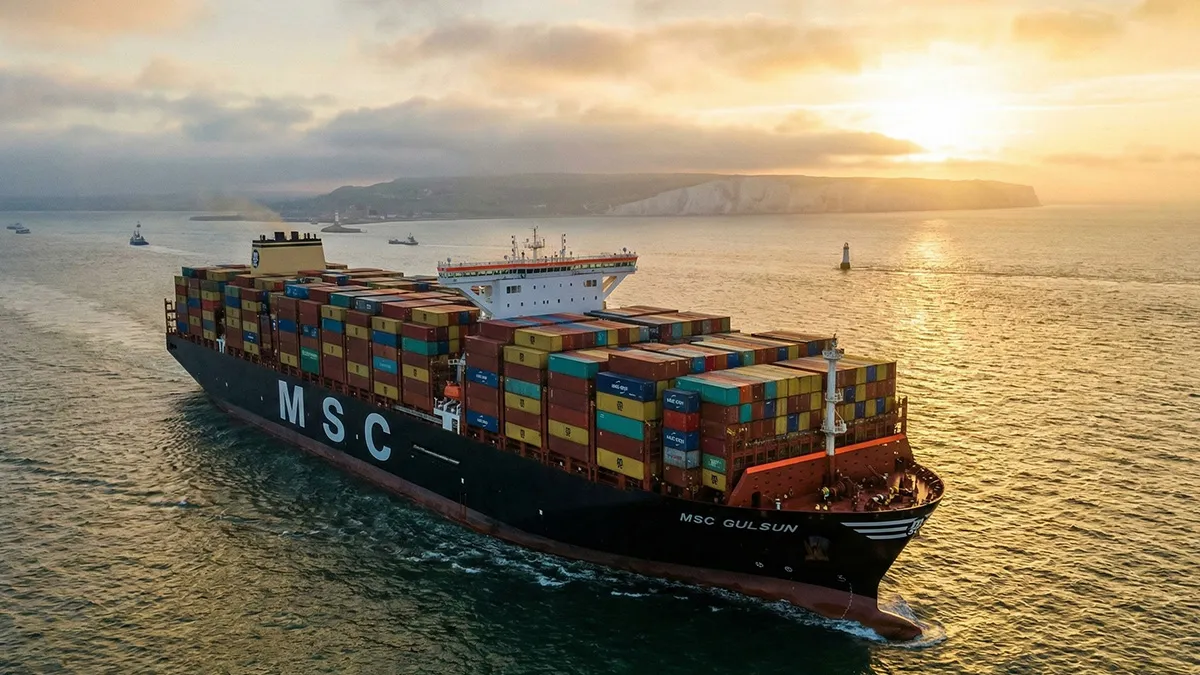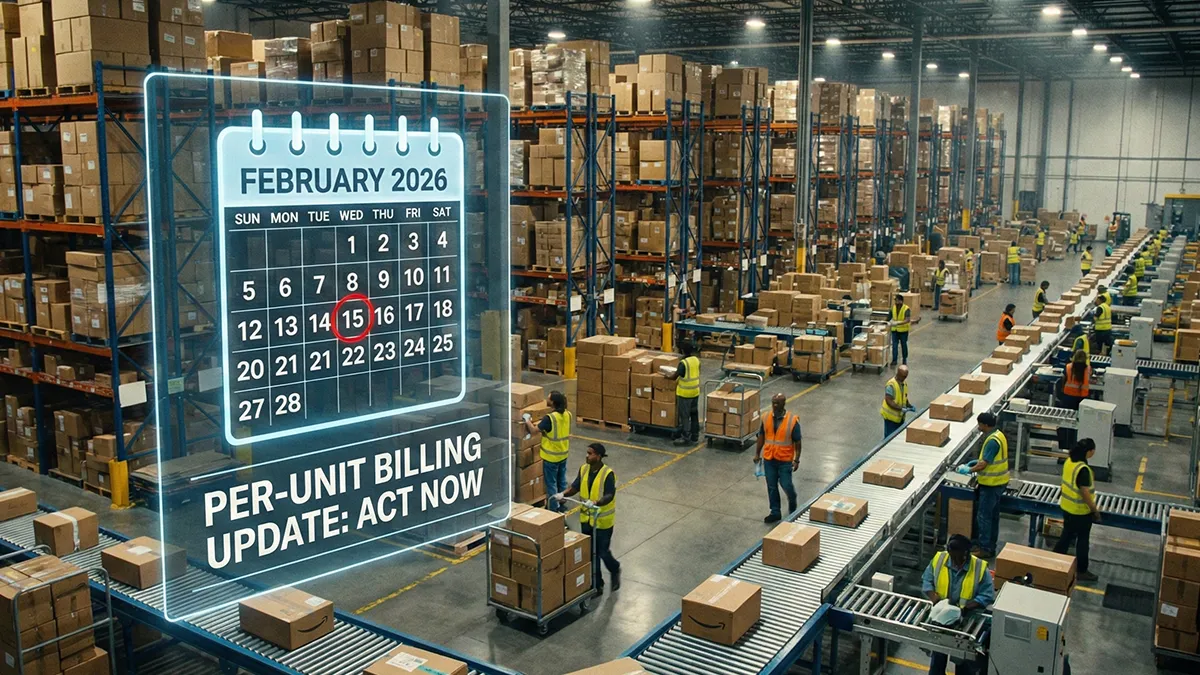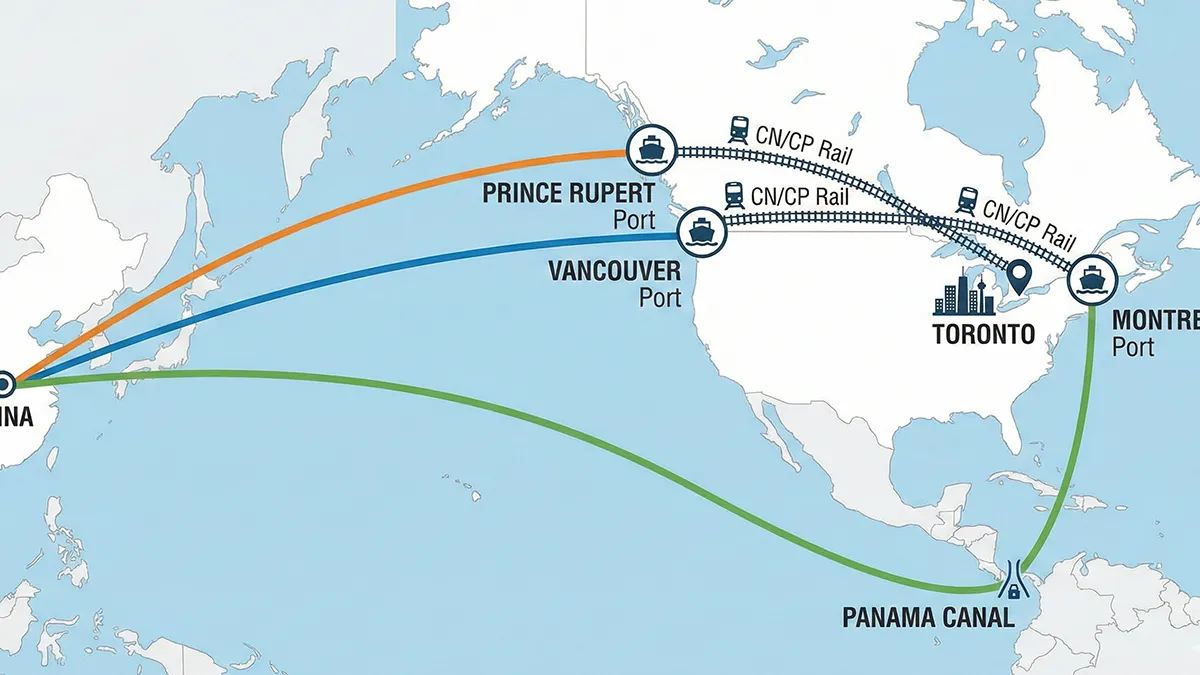What Is a Drayage Fee and How to Avoid It (2025 Guide)
What Is a Drayage Fee?
A drayage fee is the short-distance trucking cost charged for moving a full container between a port, rail ramp, or warehouse.
In international shipping, drayage connects ocean freight with inland delivery — often called the first mile or last mile of logistics.
These fees usually include container pickup and delivery but may exclude chassis rental, fuel surcharges, or waiting time, which are billed separately.
Although it covers only a few miles, drayage often becomes one of the most expensive parts of global shipping.
Importers shipping from China to the U.S. are frequently surprised by extra costs such as chassis split, pre-pull, and detention fees.
Understanding these costs — and learning how to avoid them — is key to keeping your logistics budget under control.
Understanding Drayage in Shipping
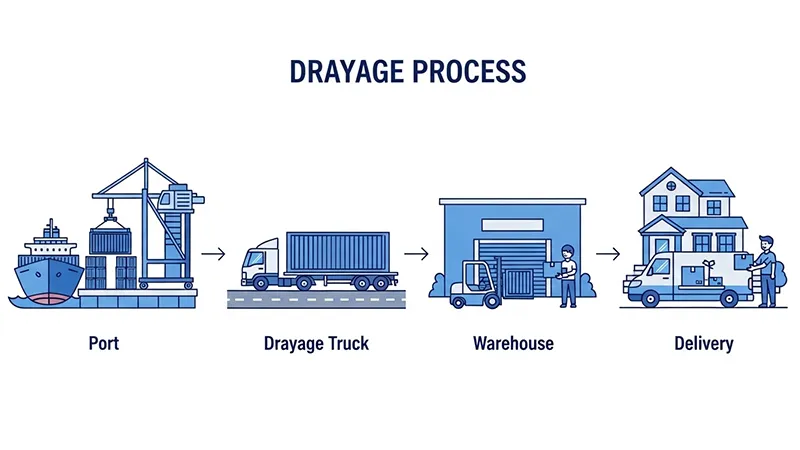
Drayage refers to the short-distance trucking movement of shipping containers between ports, warehouses, and distribution centers.
It’s the crucial link between ocean freight and inland delivery.
Common scenarios include:
-
Moving FCL containers from the Port of Los Angeles to nearby warehouses.
-
Delivering containers to Amazon FBA centers requiring scheduled appointments.
-
Transloading shipments into 53-foot trailers for inland distribution.
As the Port of Los Angeles Drayage Truck Program notes, drayage trucks handle tens of millions of container trips annually across U.S. ports — underscoring how vital (and costly) this short leg can be.
How Are Drayage Fees Calculated?
A drayage base fee—sometimes listed as a pickup & delivery charge—is the standard cost of moving a full container between the terminal and its next stop.
However, this base fee is only one part of your total drayage bill.
Extra accessorial charges such as fuel surcharges, chassis rental, or pre-pull fees can quickly increase overall costs.
Main Factors Influencing Drayage Rates
-
Distance – Longer drays mean higher mileage and driver time.
-
Container weight – Overweight loads may need special permits.
-
Chassis availability – Shortages lead to chassis split costs.
-
Port congestion – Waiting times create detention fees.
-
Fuel prices – Adjustments based on market fluctuations.
According to FMCSA guidelines on drayage operations, all licensed carriers must maintain compliance and valid equipment certifications before entering U.S. ports, which also influences cost structures.
Typical Drayage Cost Breakdown
| Fee Type | Description | Typical Range (USD) | How to Reduce It |
|---|---|---|---|
| Drayage Base Fee | Container pickup & delivery | $150–$400 | Choose warehouses near port |
| Chassis Fee | Daily chassis rental | $25–$75/day | Return chassis same day |
| Fuel Surcharge | Based on distance or idle time | +5–15% | Combine shipments |
| Pre-Pull Fee | Early pickup to avoid demurrage | $100–$250 | Book warehouse ahead |
| Chassis Split Fee | Chassis retrieved separately | $75–$150 | Confirm chassis supply |
| Drop / Bobtail Fee | Extra trip for delivery | $50–$120 | Ensure dock readiness |
💡 Tip: Always confirm what’s included in a drayage quote—many low bids exclude chassis or pre-pull fees that appear later.
Common Drayage Accessorial Charges
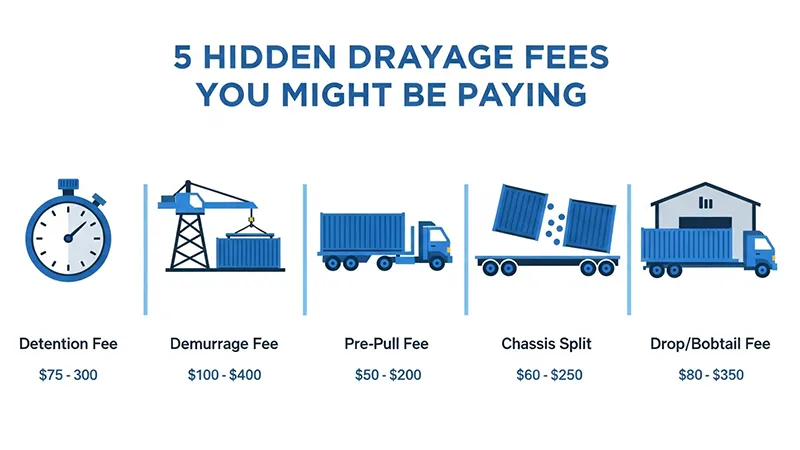
Even small delays or scheduling gaps can trigger unexpected accessorials:
1. Detention Fee (Driver Waiting Time)
Applied when drivers wait beyond 1–2 free hours.
➡ Typical cost: $75–$100 per additional hour.
2. Demurrage Fee (Port Storage)
When containers remain at port past the free window—usually 3–5 days—fees start at $150–$300 per day.
To avoid this, some importers use a pre-pull strategy to move containers early, preventing demurrage and allowing more delivery flexibility.
3. Pre-Pull Fee
Charged when a container is collected from the terminal but held at the trucker’s yard.
Although it adds cost, pre-pulling is often cheaper than paying demurrage—especially during FBA appointment delays or port congestion.
4. Chassis Split Fee
If no chassis are available at the terminal, truckers fetch one elsewhere—a chassis split that can easily add $100 or more per move.
5. Drop / Bobtail Fee
Incurred when drivers drop a container and return later for pickup.
Ensuring warehouse readiness before arrival helps eliminate this charge.
5 Proven Ways to Reduce Drayage Costs
1. Plan Pickups Early
Schedule pickups before the last free day to avoid demurrage. Early coordination with your freight forwarder can save hundreds per container.
2. Use Local 3PL Warehouses
Choosing a warehouse close to port terminals minimizes fuel, chassis, and driver time. For instance, Zbao’s Los Angeles facility helps importers cut average drayage costs by up to 25%.
3. Coordinate Warehouse Appointments
FBA deliveries often require tight scheduling. Communicate pickup windows early to avoid detention fees and failed appointments.
4. Consolidate Shipments
Combining smaller loads into a single container lowers your cost per CBM. This also reduces the number of separate dray moves required.
5. Track Containers in Real Time
Use digital tools to monitor arrival times, free days, and chassis return deadlines. Visibility prevents accidental surcharges and improves coordination.
💬 Zbao Tip: Our DDP service provides full tracking from China to the U.S.—including drayage—so you never face surprise charges.
Case Study: Cutting Drayage Costs by 30%
Client: U.S. Amazon FBA Seller (Sports Accessories)
Route: Shenzhen → Los Angeles Port
Problem: Missed FBA appointment caused $420 in pre-pull and chassis split fees.
Zbao Solution:
-
Pre-pulled early to avoid demurrage
-
Reserved chassis in advance
-
Scheduled delivery slot 3 days ahead
Result:
✔ Saved $420 per container
✔ 2-day faster delivery
✔ Zero detention fees
“Zbao Logistics helped us turn port chaos into a predictable process.” — Amazon Seller, USA
FAQ: Drayage Fee Basics
1. What is a drayage fee in shipping?
It’s the short-distance trucking fee for moving containers between terminals, warehouses, or rail ramps.
2. How are drayage costs calculated?
By distance, weight, fuel, and extra charges such as pre-pull or detention.
3. What’s the difference between a drayage base fee and total drayage cost?
The base covers pickup and delivery only; total includes accessorials.
4. How can I avoid demurrage and detention?
Plan pickups early, confirm appointments, and monitor port free days.
5. Is drayage included in DDP shipments?
Yes. Zbao’s DDP solutions include all drayage and last-mile trucking to Amazon FBA or final destinations.
Final Thoughts: Simplify Drayage with Zbao Logistics
Drayage may be a short run, but it can have long-term cost implications.
Managing it effectively requires coordination, experience, and local port knowledge.
At Zbao Logistics, we handle thousands of FCL shipments yearly, offering transparent pricing and complete door-to-door visibility—from China factory pickup to U.S. port delivery.
🚛 Need help reducing drayage fees?
Contact Zbao Logistics for a free drayage cost review.
We specialize in Amazon FBA delivery, port trucking, and DDP shipping solutions across the U.S.
